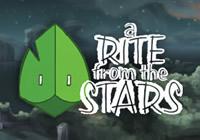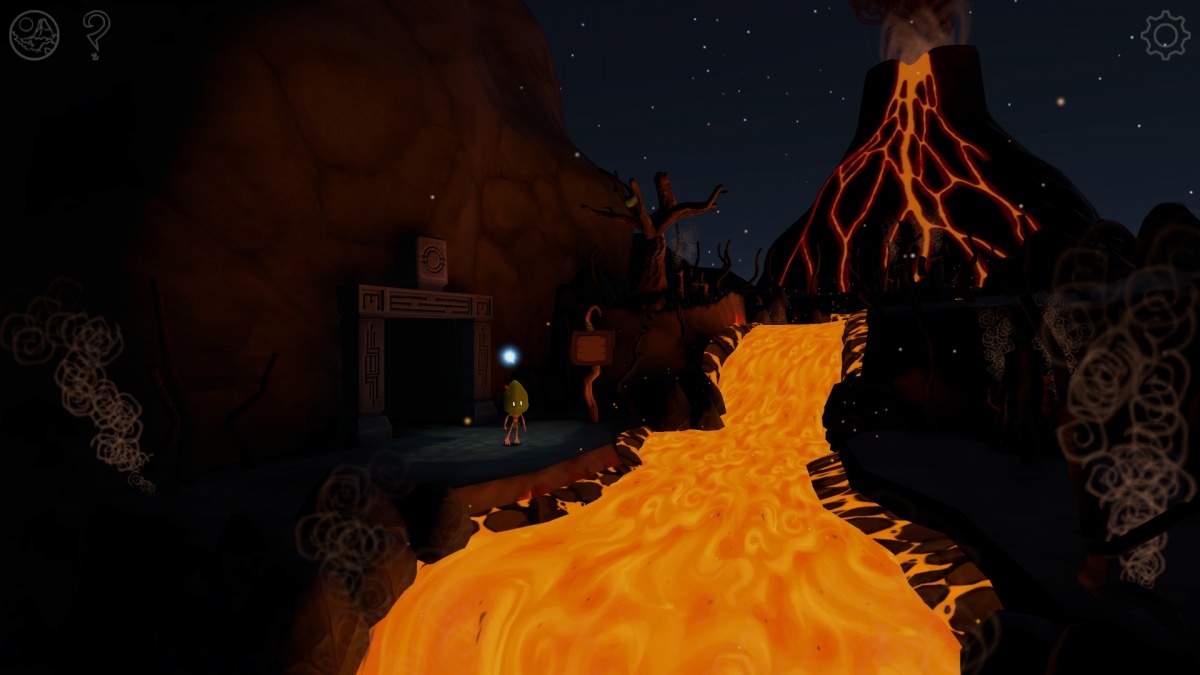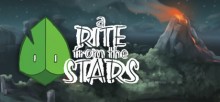A Rite from the Stars (PC) Review
By Renan Fontes  13.07.2018
13.07.2018

"Don't fix what isn't broken" is a saying that can apply to any and every medium. While reinvention naturally breeds longevity, it does not inherently guarantee quality. Change for change's sake can be tempting, but it can also be damaging. What benefit is there to redefining a formula that's proven to work? The risk is seldom worth the reward. At the same time, however, pulling off such a premature reinvention of the wheel is the sign of a forward thinker. Using the point-and-click genre as a base, A Rite from the Stars seeks to strip away some of the genre's perceived annoyances in order to craft a far tighter experience.
Courage, Spirit, and Wisdom are the three tenants that govern Makoan culture. At the cusp of adulthood, every child must set out and conquer three trials associated with each core principle in order to leave their childhood behind. On the eve of his trial, Kirm is visited by a guiding light and told he will become a legend, thus sparking a coming of age tale intertwined with one intent on the pushing the theme of destiny.
Conceptually, it's a fine enough premise that leads into a serviceable story. The destiny angle seems thematically at odds with a traditional coming of age narrative, and even a bit forced, but it doesn't detract from the overall experience. That said, it doesn't benefit it, either. The point-and-click genre is one that is naturally narrative driven, so an engaging plot is a must.

A Rite from the Stars' story simply isn't all that engrossing. Kirm is a lacklustre protagonist, the script is too stiff for its own good, and the narrative's themes are barely fleshed out. The premise alone is strong enough to allow a deep exploration of what it means to be brave, wise, and spiritual, all in the context of growing up, but the story never wants to dig past a surface level, instead opting to introduce themes without expanding upon them.
Kirm is an especially disappointing case, considering how interesting his background is. The implied son of one of Makoa's Chieftains, Kirm finds himself in a generation where the Chieftain in charge of representing Spirit expects him to fail. Not only is Kirm going into his rite with bias placed towards him, he's also a silent protagonist who is actually mute, adding a layer of tension and complication to his rite that other participants wouldn't have.
Of all of Kirm's traits, being mute is perhaps the one with the most potential. A literal silent protagonist would naturally lend itself to a main character that uses their expression and physicality to communicate with the world at large. Unfortunately, Kirm is a more traditional silent protagonist in that dialogue happens to him and not with him. He rarely, if ever, actually attempts to communicate with other characters, making him come off far blander than he actually is.

With such a simple and undercooked plot for the genre, more emphasis is placed on the gameplay to help this shine. In a bold move to try and iron out the point-and-click genre's kinks, A Rite from the Stars removes a conventional inventory system, the need to examine the environment, and, for the most part, backtracking. The idea is to cut down on the tedium of the genre, but nothing ends up replacing these elements. Rather than removing tedium, all that's removed is content.
This isn't to say the core gameplay is without merit, however. In place of where exploration would be, there's a heavier emphasis on traditional puzzle solving all throughout. Each trial can also be tackled in any order and exited at any time. The non-linearity, while not necessary, does keep the game fresh, albeit with a few hiccups.
Since all three trials can theoretically be Kirm's first, the difficulty curve needs to take that into consideration. While no trial is offensively easy, this design choice does mean there can't be a natural progression of difficulty from start to finish. It's not a major problem on its own, but the puzzles tend to vary in quality rather consistently.
At its best, A Rite from the Stars' puzzles are thought-provoking, thematically relevant and test just how well the player can absorb information and logic their way out of seemingly impossible situations. At their worst, they are vapid and shallow puzzles that rely less on intellect and more on just forcing Kirm through each area.

To their credit, each trial has its own design gimmick to keep the gameplay interesting, while fighting off complacency. The Trial of Courage has Kirm team up with a Meerkat who he has to work alongside of to solve two-person puzzles; the Trial of Wisdom involves Kirm picking up one item at a time to traverse the most dungeon-esque area in the entire game; and the Trial of Spirit plays out like a stealth segment where Kirm can plane-shift between the physical and spiritual worlds to avoid enemies and traverse seemingly blocked off areas.
Where A Rite from the Stars unquestionably shines, though, is in how it presents Makoan culture. A mix of aesthetics from Asia and the Americas, Makoa has a clear identity that feels familiar enough to real world native cultures, while also clearly treading new ground. This is to say nothing of the fact that characters do not speak English, instead speaking a made up Makoan language.
The art style stands out more than anything else, thus creating a sense that Makoan culture is actually incredibly rich and well thought out. The story rarely, if ever, explicitly touches upon the lore, but the architecture, language, and symbology of the island makes the Makoan Tribe come together as a semi-believable entity, intentional or otherwise. It may not be enough to save the gameplay, but it does stand out as a silver lining in A Rite from the Stars' rather cloudy package.

Cubed3 Rating
Good
In an attempt to mitigate preconceived annoyances found within the point-and-click genre, A Rite from the Stars ends up feeling relatively barebones when compared to its contemporaries. There's a strong sense of identity and the non-linear approach to progression adds a degree of novelty to each playthrough, but there's a distinct lack of an identifiable difficulty curve, alongside some rather hit or miss puzzles. A Rite from the Stars is worth playing through at least once, if only to appreciate how rich Makoan culture is, but it fails to improve upon the point-and-click genre in any substantial way.

![]() 6/10
6/10
![]() 0
(0 Votes)
0
(0 Votes)
 Out now
Out now  Out now
Out now  Out now
Out now  Out now
Out now Comments
Comments are currently disabled

 Sign In
Sign In Game Details
Game Details Subscribe to this topic
Subscribe to this topic Features
Features





 Top
Top

